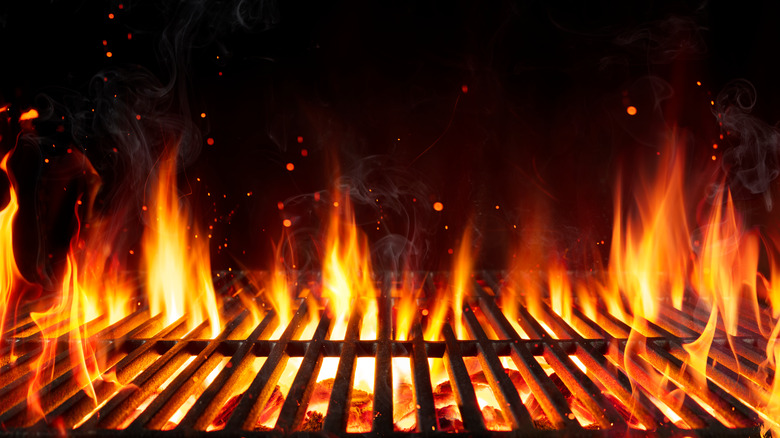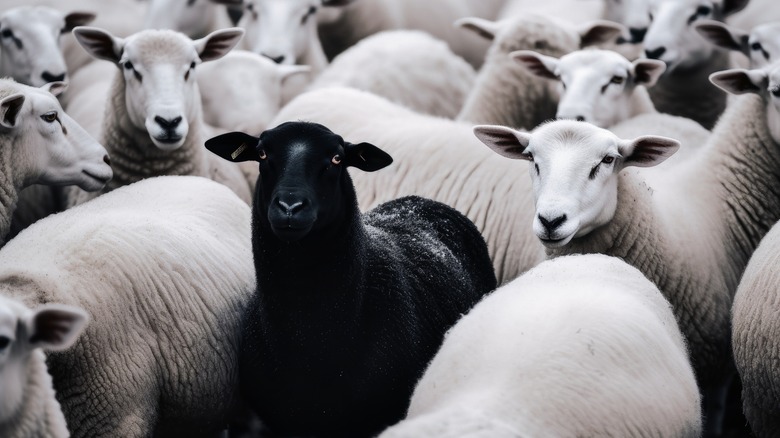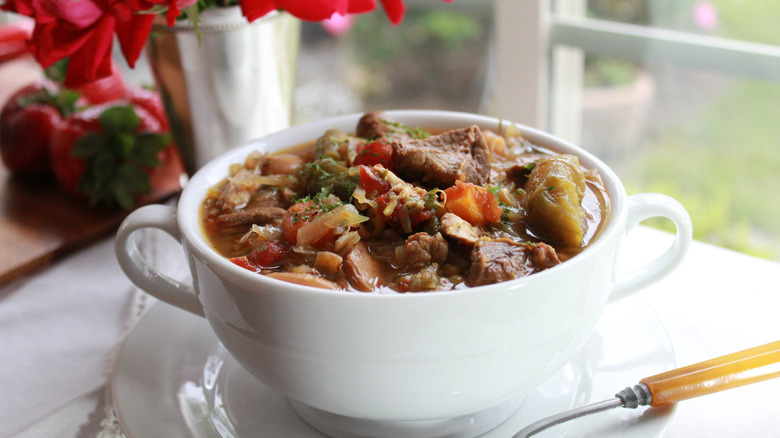Mutton Barbecue Is A Must-Try Kentucky Tradition
Barbecue is one of the great American traditions, with local options ranging from North Carolina and Memphis to Texas and Kansas City, each of which has its unique style. But generally speaking, the only real barbecue meats you'll see on display are beef, pork, or chicken. And why wouldn't they be? Ribs, pork shoulder, and, of course, brisket rule the barbecue day. Unless, that is, you go to Kentucky, where mutton is always on the menu.
That's right: Kentucky (specifically, Owensboro in western Kentucky) barbecues its mutton, cooking it slowly to bring out as much flavor as possible. This was once done using an entire sheep, but now they typically use sheep shoulder — and it's very specifically not lamb. The key involves a slow process of heavily brushing the mutton with water, vinegar, and other seasonings to ensure it doesn't dry out during the long cooking process.
Barbecue mutton has a long history in Kentucky
Mutton isn't a particularly commonly eaten protein in America relative to many others, and that dates back decades. Sure, you see lamb some, particularly in fine dining, but mutton? Not so much. In 2021, the per capita mutton consumption in the U.S. was 1.4 pounds, including lamb. By contrast, the per capita beef consumption in 2022 was 59.1 pounds. Americans aren't all that big on eating adult sheep, as mutton is seen as a tougher meat. You might occasionally see it on barbecue menus elsewhere, but it's not a staple.
Kentucky barbecue bucks this trend. It's important to note this method is used explicitly for mature sheep. The history dates back centuries to 1816, when imported wool began being taxed, making local sheep wool profitable, particularly in Kentucky. The only issue was what to do with the sheep once they no longer produced good wool. The answer was barbecue; slow-cooking the tougher mutton over hours to break it down.
Mutton barbecue is vinegar-based, like North Carolina's
Though the specific ingredients used in mutton barbecue have changed over time (and vary from place to place), there are certainly some commonalities. The mixture of water and vinegar, typically also with lemon juice, Worcestershire sauce, garlic, and hot peppers, is a must-have. If it's served in whole pieces, the dipping sauce is also vinegar-based (similar to the variety found in North Carolina), which means this isn't a dish that shorts you on the acid. Otherwise, you'll sometimes see mutton in Kentucky's signature stew known as burgoo (where it's the traditional meat involved).
So, if you're a barbecue fan and have ever been curious about how mutton would take to the process, get yourself to western Kentucky. You might want to do it sooner rather than later, too: As pork barbecue becomes more common in Kentucky, fewer places are serving barbecued mutton.


